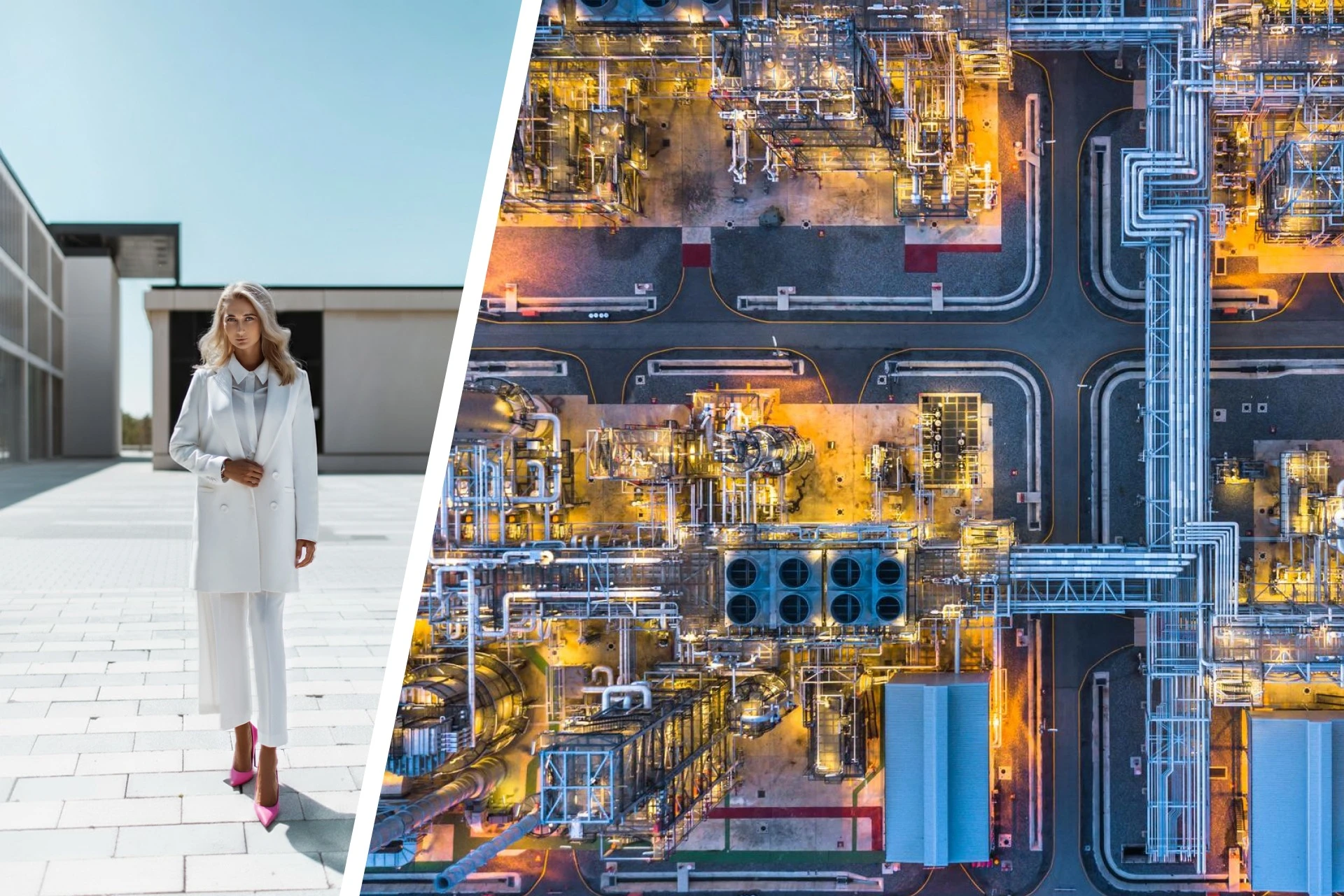
Dubai is often associated with luxury towers and waterfront living — but beyond the skyline lies another powerful engine of growth: its industrial zones. Over the past decade, Dubai has transformed itself into one of the most advanced logistics and manufacturing hubs in the Middle East.
As global supply chains evolve and e-commerce continues to expand, industrial plots have become one of the most attractive real estate segments for investors seeking long-term, stable returns.
A Strategic Location with Global Reach
Dubai’s strategic position — between Europe, Asia, and Africa — makes it an ideal base for industrial operations.
Its world-class ports (Jebel Ali, Port Rashid) and airports (DXB, DWC) connect businesses to more than 200 global destinations. Combined with efficient customs, tax-free incentives, and advanced infrastructure, this ecosystem supports everything from light manufacturing to large-scale logistics.
Mainland vs. Free Zone Industrial Plots
Investors in Dubai can choose between mainland and free zone industrial plots, each offering distinct advantages depending on business goals.
Mainland Industrial Plots
- Governed by the Dubai Municipality and the Department of Economic Development (DED).
- Ideal for companies that want to trade directly within the UAE market.
- Options include ownership (for UAE nationals and certain foreign entities) and long-term lease models (for expatriates and foreign investors).
- Located in key industrial districts such as Al Quoz, Ras Al Khor, Umm Ramool, and Jebel Ali Industrial Area.
Free Zone Industrial Plots
- Managed by specialized authorities such as JAFZA (Jebel Ali Free Zone), Dubai Industrial City (DIC), Dubai South, Dubai Silicon Oasis, and DIC TechnoPark.
- Offer 100% foreign ownership, tax exemptions, and repatriation of profits.
- Streamlined setup processes, simplified customs clearance, and ready-built infrastructure (utilities, roads, connectivity).
- Suited for export-oriented businesses and multinational manufacturers.
Why Demand for Industrial Plots Is Rising
Several economic and structural shifts are fueling the demand for industrial land in Dubai:
- E-commerce Expansion
With Dubai’s fast-growing online retail sector, logistics and warehousing demand has surged. Companies like Amazon, Noon, and other fulfillment centers have accelerated investment in industrial plots near transport corridors. - Manufacturing Diversification
The UAE’s “Operation 300bn” strategy aims to make industry a major GDP driver by 2031, boosting domestic manufacturing, food production, and advanced materials. - Green and Smart Industries
Industrial areas are adapting to sustainable manufacturing, solar energy integration, and environmentally friendly logistics — key factors attracting global investors aligned with ESG principles. - Infrastructure and Policy Support
Dubai’s government continues to invest heavily in infrastructure — roads, ports, utilities, and technology — while maintaining zero corporate tax in most free zones and favorable long-term visa options for investors.
Investment Options and Costs
Industrial plots in Dubai are typically offered through:
- Freehold ownership (in specific zones),
- Long-term leaseholds (25–50 years, renewable),
- Or build-to-suit agreements with zone authorities or private developers.
Plot prices vary depending on:
- Location (proximity to ports, highways, or airports),
- Zoning and infrastructure readiness,
- Plot size and allowed activities (light, medium, or heavy industry).
Typical price ranges start from AED 100–200 per sq. ft. for raw industrial land, with ready plots in prime free zones commanding higher rates.
Process of Acquiring an Industrial Plot
- Select the jurisdiction and zone.
Decide between mainland or free zone, based on your business activity and target markets. - Submit an application and business plan.
Authorities will review the proposed use and investment size. - Approval and agreement signing.
Once approved, you’ll sign a lease or sale agreement with the relevant authority. - Plot handover and development.
Infrastructure connections (electricity, water, telecom) are facilitated through the zone authority. - License and operational setup.
Final step: obtain the industrial license and start construction or operations.
Who Is Investing in Dubai’s Industrial Zones
Investors come from a wide range of industries — logistics, construction materials, food processing, automotive, technology, and renewable energy.
International brands have established regional headquarters or manufacturing bases in areas like Dubai Industrial City, Dubai South, and JAFZA, taking advantage of modern facilities and business-friendly regulations.
Strategic Insight from Mayak Real Estate
As Dubai’s economy diversifies, industrial plots are shifting from niche assets to core investment opportunities.
According to Evgenia Timofeenko from Mayak Real Estate, industrial land is now “one of the most undervalued yet high-potential asset classes” for investors looking beyond residential or retail sectors.
Mayak Real Estate assists both corporate and private investors in evaluating, acquiring, and structuring deals for industrial land across Dubai’s mainland and free zones — focusing on transparency, compliance, and long-term return optimization.
Dubai’s industrial landscape is entering a new era — driven by innovation, logistics expansion, and sustainable development.
For investors seeking tangible, stable, and scalable opportunities, industrial plots represent more than just land — they are the foundation of the UAE’s future economy.
As Evgenia Timofeenko notes, “Real estate in Dubai isn’t only about towers and views. The next wave of opportunity is being built in warehouses, factories, and logistics parks — where the real economy grows.
Mayak Real Estate is a Dubai-based real estate agency specializing in property investment and advisory for international clients. The company provides strategic guidance for commercial, residential, and industrial acquisitions across the UAE — helping investors align opportunities with market trends and legal frameworks.







